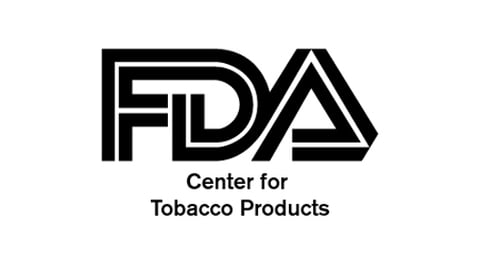NACS & SIGMA Submit Joint Response to FDA's E-Cigarette Policy Proposal
ALEXANDRIA, Va. — The convenience store industry shares growing concern about the rise of electronic cigarette use by minors; however, the industry did raise concerns about the Food and Drug Administration's (FDA) proposal to restrict the sale of flavored vapor products.
This week, NACS, the Association for Convenience & Fuel Retailing, and the Society of Independent Gasoline Marketers of America (SIGMA) submitted formal comments on the FDA's draft guidance regarding the sale of flavored — other than mint, menthol and tobacco — e-cigarettes.
Hundreds of retailers also have submitted comments to the agency.
In comments addressed to Norman Sharpless, acting commissioner of the FDA, NACS and SIGMA said they share the agency's concern over the increased use of e-cigarettes by underage consumers; however, the groups pointed out that the draft guidance doesn't address that concern but instead favors some retail outlets over others "in a way that is not consistent with the reality of the marketplace," according to NACS and SIGMA.
On March 13, former FDA Commissioner Scott Gottlieb announced that the agency is proposing to end the current compliance policy as it applies to flavored electronic nicotine delivery system (ENDS) products such as electronic cigarettes, and prioritize enforcement of their sale to shut down youth access. The proposal does not include tobacco, mint and menthol flavors, as Convenience Store News previously reported.
The stricter compliance policy would effectively remove the flavored tobacco products from convenience stores, allowing sales only in adult-only, age-restricted outlets like tobacco shops.
According to the two industry groups, the FDA has not provided data that supports this type of distinction between adult-only and stores where minors can enter. The draft guidance, they noted, cites data showing that more teens acquire e-cigarettes from vape shops (14.8 percent) than from convenience stores (8.4 percent).
If implemented as written, the FDA's draft guidance "will push underage consumers to retail outlets with the worst track record of compliance with age restrictions. The result will be more overall sales of [e-cigarettes) to minors rather than less," NACS and SIGMA pointed out.
An American Journal of Health Promotion study indicates that each vape shop/tobacco store is 100 times more likely to sell e-cigarettes to a minor than the average convenience store, the groups added.
Other concerns, according to the groups, include:
- The current draft guidance is an attempt to impose a regulation on an industry, which mandates a more extensive rulemaking process than the FDA has used in this situation.
- Tobacco sales are vital to the c-store industry's economic viability, with tobacco products accounting for nearly 38 percent of an average store's in-store sales in 2018.
- The agency should focus on underage users' access to the products themselves. Stores should keep them behind a sales counter that is solely accessible by adult employees.
- The draft guidance uses confusing language and high-level recommendations that don't specify how retailers can comply.
- The FDA has said it will begin enforcing the updated policy in 30 days after it is finalized, which is not sufficient time for businesses to respond appropriately.
House of Representatives Support
In addition to comments from the retail community, the FDA also heard from 46 members of the U.S. House of Representatives about some of the same concerns.
The bipartisan letter, led by U.S. Rep. Trey Hollingsworth (R-Ind.), noted that the proposed restrictions pick winners and losers in the marketplace by allowing certain channels of trade to sell these products and prohibiting other channels like the convenience store and grocery channels.
"We should want a marketplace where in all players are competing under equal rules and that advances the stated, pressing public policy need of keeping e-cigarettes out of the hands of minors. That mission is advanced by having a set of guidelines that enables and ensures compliance by all retailers, not one that fundamentally excludes one set of retailers who have proven capable of compliance with laws forbidding the sale of products to minors," the letter stated.
According to NACS and SIGMA, the letter also raised concerns with the FDA's process in implementing the draft guidance. While the agency accepted public comments on the draft guidance from March 13 through April 30, it did not go through a notice and comment rulemaking, which it is required to do under the Family Smoking Prevention and Tobacco Control Act when regulating the sale and distribution of tobacco products.
"The convenience stores and grocery stores that have for decades demonstrated consistent compliance deserve the data underpinning a decision that would bar their sale of these products to legal adults and a process wherein the industry could provide input about the guidance's impact on equality in the marketplace," the letter states.



